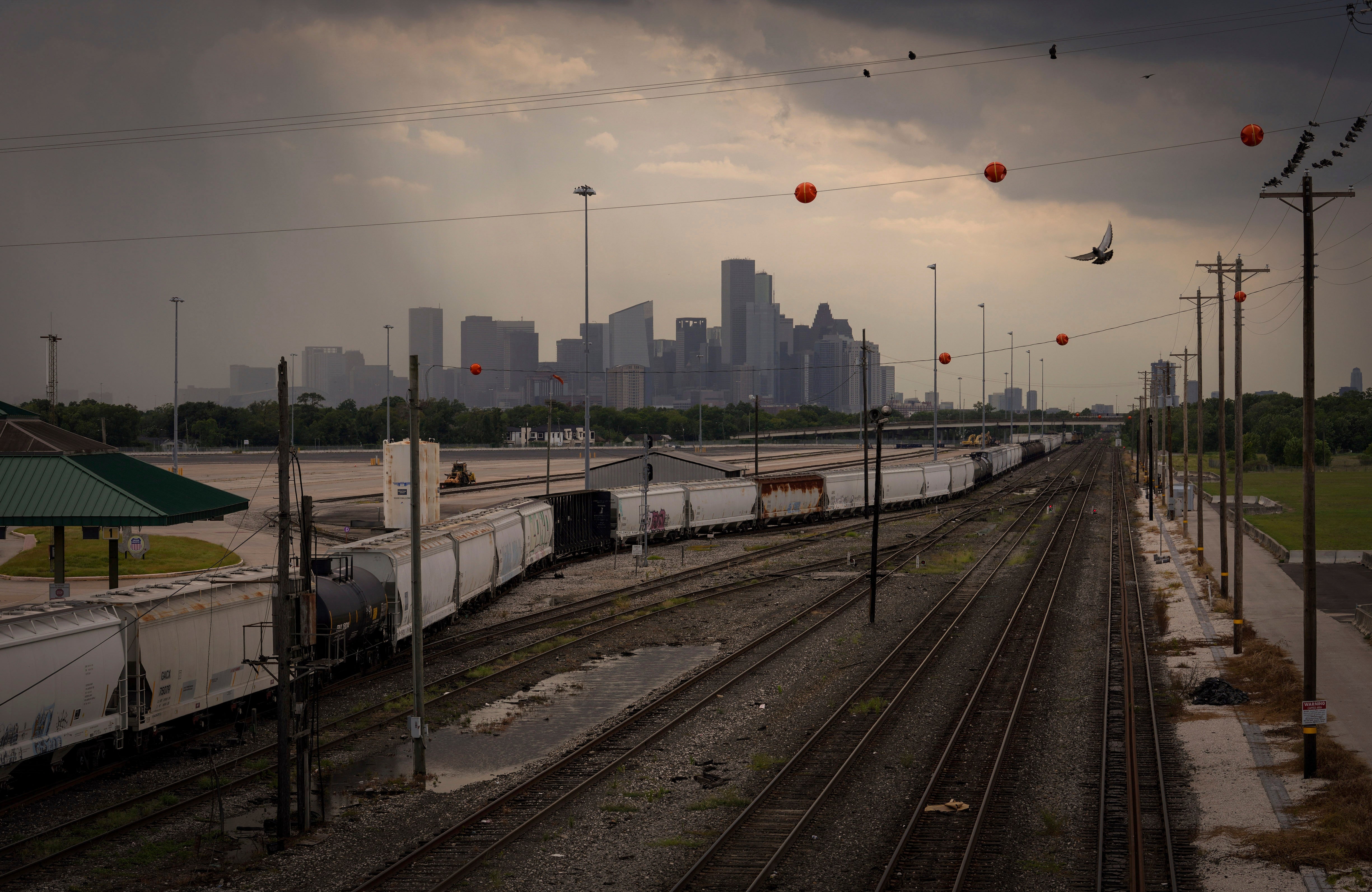Houston approves $5M to relocate residents living near polluted Union Pacific rail yard
Houston officials have approved $5 million for a fund to help relocate residents from neighborhoods located near a rail yard polluted by a cancer-linked wood preservative that has been blamed for an increase in cancer cases

Houston officials on Wednesday approved $5 million for a fund to help relocate residents from neighborhoods located near a rail yard polluted by a cancer-linked wood preservative that has been blamed for an increase in cancer cases.
Residents and local officials have long blamed the high number of cancer cases on contamination from a Union Pacific rail yard near two historically Black neighborhoods, Fifth Ward and Kashmere Gardens. The wood preservative creosote, which has been associated with an increased risk of contracting cancer, was used for more than 80 years at the site until the 1980s. City officials say the contamination has reached the groundwater in the neighborhoods.
During a city council meeting in which the funding was approved, Mayor Sylvester Turner said Houston “has a moral obligation” to help relocate residents away from the four different cancer clusters that have been identified in recent years. Health officials have found higher rates of respiratory cancers as well as childhood cancers, including acute lymphoblastic leukemia.
“That’s the worse condition that you can find yourself in, when you have loved ones or family members or children that are diagnosed and dying of cancer and you feel as though you’re just stuck, while you continue to fight to get the attention of others, or in this case, ask (Union Pacific) to step up,” Turner said.
Turner said relocating families from among the 100 properties that have been affected by the contamination could cost up to $35 million. The city is looking at other sources, including federal funding, to help pay for the relocation program.
The railroad has said that additional testing is needed to accurately determine the “true extent and source” of the contamination in the neighborhoods.
In February, the U.S. Environmental Protection Agency announced an order compelling Union Pacific to conduct additional testing in and around the rail yard.
“Union Pacific is fully committed to following through with the additional testing that all parties, including the city of Houston, agreed is necessary. We are currently in the neighborhood seeking formal permission from residents to conduct these critical soil samples once the U.S. Environmental Protection Agency approves the testing plan. This additional testing will provide the essential data needed to make informed decisions regarding any required additional remediation,” Union Pacific spokesperson Kristen South said Wednesday in a statement.
In July, Turner said he didn’t want to wait for additional testing and announced a new city program that would help move residents on a voluntary basis.
Union Pacific has pushed back on the city’s claims. Last month, the railroad announced the Texas Department of State Health Services had found no cancer or other health concerns linked to the presence of chemicals, including dioxins, detected in soil samples taken by the city near the site.
The Houston Health Department accused Union Pacific of misrepresenting the state’s review of the soil samples, saying the rail yard’s “adverse presence in this community is undeniable.”
The approval of the $5 million had been delayed by a week as some residents had wanted more information about how the relocation program would work. Turner said Wednesday’s approval was the first step in a process that will include input from residents on how the program will operate.
“Thank you mayor for what you are doing ... It is definitely needed. We don’t want to continue to have to lose our children and others being diagnosed with cancer,” LaTonya Payne, whose 13-year-old son Corinthian Giles died of leukemia in 2021, told council members on Tuesday.
___
Follow Juan A. Lozano on X, the platform formerly known as Twitter: https://twitter.com/juanlozano70
Subscribe to Independent Premium to bookmark this article
Want to bookmark your favourite articles and stories to read or reference later? Start your Independent Premium subscription today.
